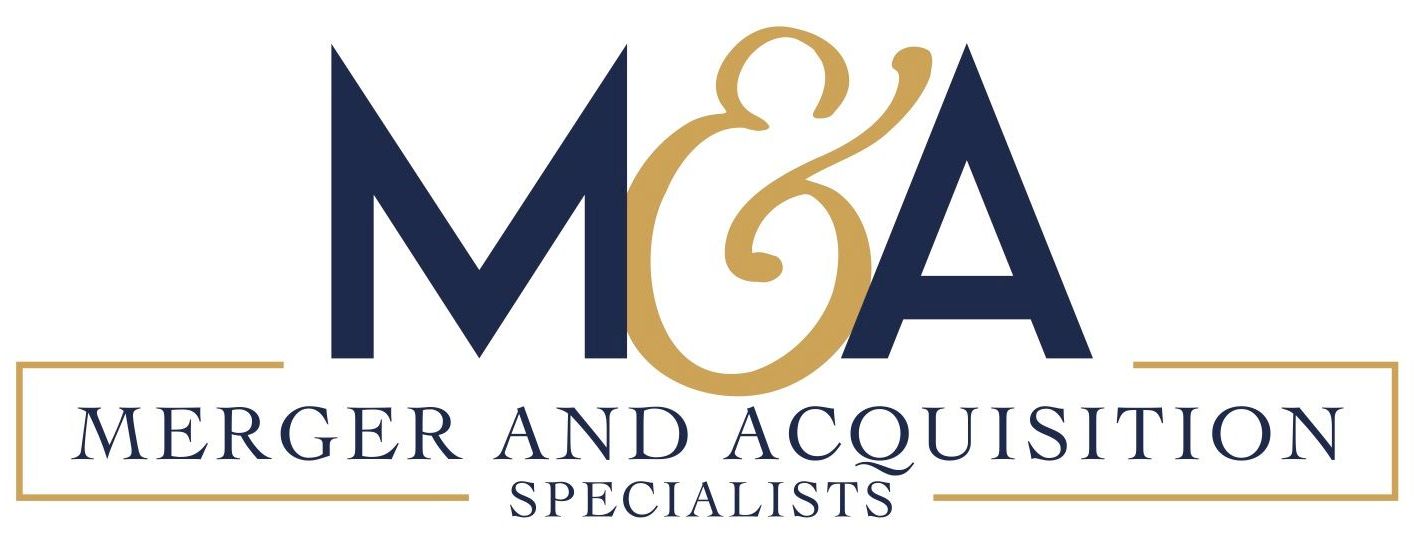Do You Need a Broker To Sell Your Business?
Or should we say, “Why you do need a broker to sell your business.”
I spent my first life coaching American football at various colleges around the country. When I got out of coaching, I jumped into the world of Business Brokerage and Mergers & Acquisitions (M&A). In one of my first conversations with a potential seller, she asked about my background. I told her I used to coach college football. She looked at me and said, “Well, you just jumped from one pack of wolves to another pack of wolves, didn’t you?”
Business Brokers may not have the best reputations. I get it. I do not think it is a deserved stigma, but I get it. So, when I sit down to visit with potential sellers, and they ask, “Why should I pay you to sell my business?” My answer is always the same.
You shouldn’t…if you can sell it yourself.
It has been my experience with both packs of wolves I have lived with that honesty, transparency, and direct answers will offset any preconceived notions a person may have. If you are a business owner, perhaps you’ve encountered a forked-tongued devil of a business broker and you walked away unimpressed and suspicious of their motives. Which is why, if we ever meet and you ask me why you should pay me to sell your business, my answer will be:
You shouldn’t…if you can sell it yourself.
But isn’t this an article about why you DO need a business broker? Yes, and therein lies the rub. Most owners I work with have never sold a business before. How do you know how to do something if you’ve never done it before? The only way to know is to do. Do you want to risk your greatest asset on an endeavor you’ve never tried before? After 10 years in this field and working with over 100 deals, it is quite clear that many business owners do not know how to go about selling their business.
And that’s just fine because you built your business to provide a living for you and your family, provide a service to your community, and provide for your employees and their families. You run your business, that’s what you do. You’re good at it. Running your business is a full-time job.
Selling your business is also a full-time job. You probably don’t do your own taxes. You probably do not handle your own retirement accounts. You likely did not sell your house on your own or buy one without the help of a realtor. Most people have professionals who handle those tasks for them. These are trusted professionals and advisors that specialize in one area or field. You trust them to do what is right on your behalf and to look out for your best interests. So, when it comes to selling your most valuable asset (your business), why would you try to handle that task yourself?
Selling a business is the single most unique endeavor I have ever encountered. It is unlike buying or selling anything else out there. You can talk folks into buying a pair of shoes, or buying a car, or signing up for a newsletter, but you can’t talk anybody into spending hundreds of thousands of dollars and going into debt.
Take a look at the questions below and answer them for yourself.
- Do you know how to value a business?
- Do you know how to evaluate your business financials for cash flow?
- Do you know how to market a business without people knowing it’s for sale?
- Do you know the difference between a conventional loan and an SBA loan?
- Do you know the difference between an SBA 7(a) loan and an SBA 504 loan—and when the two can be combined?
- Do you know how to go about finding buyers for your business?
- What information does a buyer really need in the initial conversations?
- Do you show a potential buyer your tax returns in the first meeting? What about the second meeting? Or the third?
- Have you ever negotiated with anyone over price and terms?
- How do you handle a buyer that wants more and more and more information, but will not write an offer?
- How do you get a buyer to write an offer without showing them your financial information?
- Do you know how to screen and qualify buyers with three questions?
- Do you know who the bank represents when they have a deal brought to them?
- What is the difference between a Main Street Buyer and a Private Equity Buyer?
I could ask about 20 more. But put those questions on the shelf for a second. We’ll circle back to them.
Let me give you a true-life story of a former client of mine. We helped them sell their concrete manufacturing company. The sellers were a husband-and-wife team. Prior to coming to us, they had approached a potential buyer themselves. This buyer was a competitor of theirs—a bigger concrete company in the same area of the state.
To the sellers, it seemed like an easy thing to do: call up the owner of the company, who they knew, tell him they were trying to sell and see if he wants to acquire them. Why wouldn’t he? They didn’t need a broker; they had their buyer. Pretty straightforward. Simple and clean.
And very naive.
The sellers spent four months providing every kind of detailed report the buyer asked for: tax returns, profit and loss statements, accounts receivable reports, accounts payable reports, employee information, cubic yards of concrete poured, and on and on. I call it the constant drip of the buyer. The sellers were poked, prodded, and probed for four months with no offer on the table, and no guarantee they would even get an offer. They opened their books and business to a competitor—showing that competitor everything about their operations.
The competitor/buyer showed them nothing. He made no promise of an offer or an amount. He did not show them his financials (for all the sellers knew this company could have been heading towards bankruptcy). The buyer put forth no effort—only demands and supposed needs to write the offer.
The sellers put forth tremendous effort—all in the hopes of getting a good offer. Finally, the day came when the buyer put forth an offer. It was such a lowball offer the sellers did not even counter; the deal was over and the last four months were wasted. Their business’ operations had been compromised and turned over to a competitor, and they had nothing to show for it.
By the time the sellers came to me they were frustrated, suspicious, angry, and bitter about the process of selling their business. They did not trust me, my firm, or anybody for that matter. They were jaded. And rightfully so. The sad thing is the situation could have been avoided.
These folks sent their financials to their CPA to do the taxes. They sent their money to their financial advisor to invest in their retirement. They had used realtors to buy and sell houses in the past. But they did not follow this model with their single greatest asset—their business. They thought they could handle selling their own business themselves.
I do not want to paint a false picture that nobody can ever sell their own business. It happens. But it has been my experience that it is a rare occurrence when a seller successfully markets and sells their own business, unless it’s to an employee or a family member. But it does happen, hence my response when people ask me why they should pay me to sell their business:
You shouldn’t…if you can sell it yourself.
We listed the concrete business January 28th. We pushed it out on the market in the first week of February. Another broker in our office had a close friend who, ironically enough, mentioned he was looking for a concrete company to acquire to go along with their construction business. We set a Buyer-Seller meeting for the middle of February—a mere two weeks after listing it—and by March 26th we had a full-price, agreed-upon offer to purchase and began due diligence.
In addition, we visited with several other buyers in our screening process. We accomplished in fewer than 60 days what the sellers had tried for over 120 days to accomplish. AND our offer was $200,000 MORE than the competitor’s offer.
Closing took several months for several different reasons. The deal finally closed in December. Even though we had an agreed upon offer in less than 60 days, it took approximately 9 months to complete financing and secure the funds.
We kept the deal together by working with both sides to obtain needed information, liaise with the lender, schedule appraisals and inspections, obtain updated financial numbers and more. It’s a full-time job to find the right buyer, and then another full-time job to get the deal closed.
Now let’s revisit our questions above. If you do not know the answer to these questions, then you are like the owners of that concrete company. Most people do not know the answers to those questions. Those are vital questions about selling a business. Going into this endeavor blind, without ever having done it before, by yourself, is a dangerous gamble to take. Attorneys, CPAs, real estate agents—all of these are professionals who provide you specific services. Too many of them say they sell businesses, but they never have, or they’ve sold a few over 20 years, etc. Be careful.
Me - I am not an attorney. I am not an accountant. I am a certified real estate agent, but I do not sell real estate unless it’s attached to a business. I am not FINRA certified. I am not a stockbroker. I am not many things.
I am a business broker. I am an M&A advisor. I work main street, small business, and M&A deals. I confidentially help people sell and buy businesses as my full-time job. I have been around for ten years—which seems to be like 100 years in business brokerage. I have several years in this profession and have sold businesses in nearly every industry there is. I have worked with sale prices ranging from $50,000 to $25,000,000.
And that’s why you need a broker to help you sell your business. This is a one-time event. There are no redos. Once the papers are signed and the funds exchanged, the deal is final. Get somebody to help you that is experienced and has done it many times before.
You will save time, money, and effort. You will be able to continue to run your business and live your life. Let the broker handle the process from A-to-Z; the headaches of dealing with lawyers, buyers, and bankers. The skills of negotiating deals and structuring terms. That’s what you pay us for. And, if the firm is doing things right, the broker does not get paid until you get paid.
SR. BROKER, MERGER & ACQUISITION SPECIALISTS











Share On: